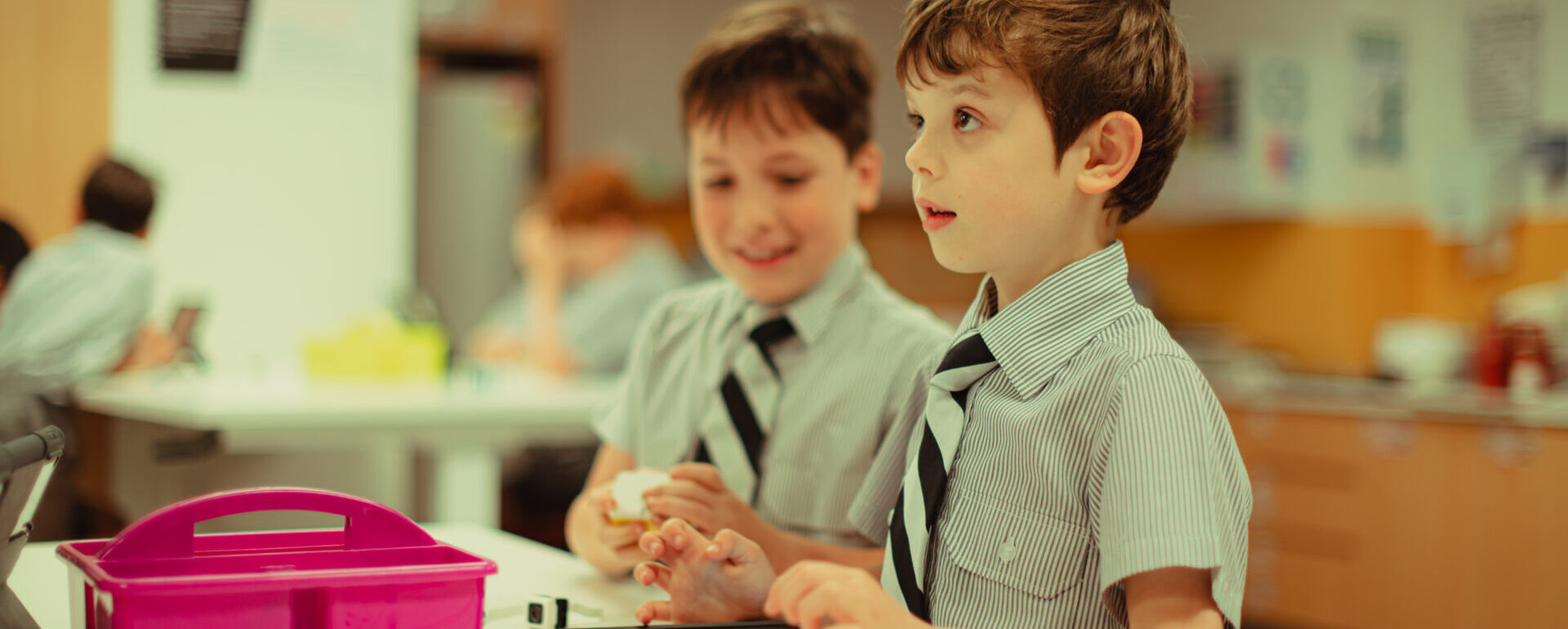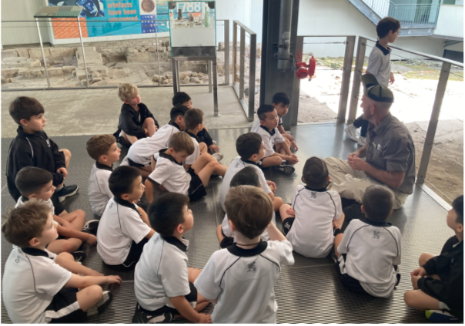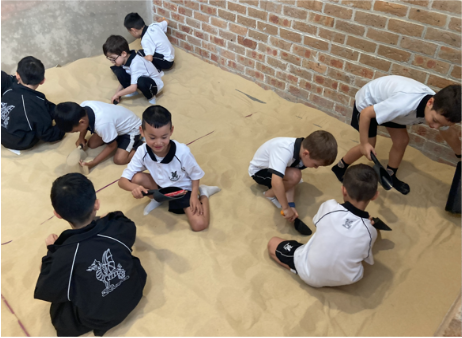7 November 2024
From the Deputy, Head of Preparatory Schools & ELC
Exercise and the Brain
During the Term 3 break, I reread a book called Spark: Research around exercise and the Brain. It was an interesting book which claimed that exercise may actually be more beneficial for our brain development than our bodies. It argued that vigorous exercise is necessary so that people can learn. This is an interesting idea for our students and their academic development. It is interesting to consider the impact of this idea for our teachers and the parents at the Prep School.
My observations are that our students are exercising regularly as part of the school program; some children could be more active but we provide a strong baseline level of fitness for all our children. Many of the teachers and parents in our community, however, are often consumed with the daily stresses of work, caring for children or running a household and rarely find the time or energy for regular vigorous exercise. It was the educational context and community perspective that made this book so interesting.
The book was written by John Ratey who is a clinical professor of psychiatry at Harvard, who has written previously about ADHD in education. He argues that exercise affects many aspects of our brain, from mood to anxiety and attention. Exercise increases our levels of neurotransmitters (serotonin, norepinephrine and dopamine) which impacts our thoughts and emotions. The book also explains how high levels of stress destroy brain cells and how exercise can reverse this process. When we exercise, our muscles produce proteins that travel through the blood and into the brain. If you did half an hour of exercise this morning, you are more able to sit and focus on this paragraph. The brain having the right balance of neurochemicals sets the stage for much of the work and learning that our children do each day.
The book shares some case studies about schools where increased physical fitness had a positive effect on reading and literacy levels. It advocated for students to participate in regular, vigorous exercise to improve learning. It also explained in detail the science of how the brain works and, overall, states that exercise improves learning in three ways: it improves alertness, attention and motivation; it helps nerve cells to bind with each other and it leads to the development of new nerve cells.
On a school level, we have looked at what we do in terms of regular fitness and vigorous exercise for our students in the context of our Sports programs. On a community level, we need to think about how we as adults can include some form of regular exercise in our day, even if it is in short bursts to help us focus, reduce stress and help repair damaged nerve cells from stress and modern living. It is tempting to ignore advice about exercise when it is solely in the pursuit of body changes, but it is harder to ignore when it is shown to be scientifically linked to stress reduction, improved focus and better wellbeing for our children and for ourselves.
Honouring Félix Laubi (ON 2020)
Earlier this week, the Newington Foundation launched an appeal to raise funds for a new prize to be awarded at Prize Giving this year, established in honour of Félix Laubi (ON 2020). Tragically, we lost Félix earlier this year to a rare form of cancer. With the consent of his family, The Félix Laubi (ON 2020) Prize for Outstanding Commitment, Dedication and Humanity will be awarded to a student concluding Year 10 who demonstrates outstanding leadership in their pursuit of excellence, be it in academics, sports, in service, or the arts. I invite you to join with me and others, by making a tax-deductible gift to the Newington Foundation to help establish this prize. Together, we can recognise and celebrate our values, in honour of Félix. Every contribution helps. You can donate here.
What Happened This Week
Kindergarten Excursion
Kindergarten transformed from students to archaeologists when we visited a true archaeological site in The Rocks on Tuesday. Each student dug for artefacts and predicted their use, toured the ruins of some of Sydney’s first homes and learned about the Byrne family’s life from 100 years ago. It was a memorable experience, which we hope will be engrained in each of their own personal histories.
Sport News
View this week’s Wyvern Spirit recipients via New Spaces.
A huge congratulations to Reed M on his success at the NSWPSSA Athletics Championships. Read more on New Spaces.
Connection and conversations at Eungai Creek
It’s one of life’s sweet ironies that through distance comes re-connection, and Mr Mark Morrison, OAM and Director of Eungai Creek, believes it brings something else important too – gratitude. In this article Mark shares shares how our Year 9 students are bonding through outdoor immersion and embracing handwritten letters, which spark deep conversations and greater connections with parents and other students. Read more here.
Chapel Thought
I’ve been reflecting a lot recently on the enduring nature of hope. As we think about our own lives, and the struggles that we may face in our own journey, or even the ups and downs of life that we see played out in our communities and across the world, it’s important to be reminded that hope endures no matter what. As far back as Greek Mythology and Pandora’s Box, there’s always been an idea that no matter what may happen, hope still remains. Our Christian faith also reminds us that, through God, we can always find hope. As we face individual challenges or look at issues facing the world, it’s important to remind ourselves that God’s hope endures. Isaiah 40:31 reminds us that in God we can find strength and a hope that endures.
Our faith reminds us that no matter what, God is with us, and He sustains us in the good times and the challenging times. Our faith reminds us that God loves us no matter what. As we face whatever comes our way in our life, or in our world, we can remember that God’s hope endures no matter what.
Pastor Richard La’Brooy
Staff Profile

In the coming weeks, we will be profiling a staff member from each of our different campuses. This week, we introduce you to Melissa Mitreski, Head of Whitaker House at our Stanmore Senior campus.
Q. What are some of the qualities that make a great teacher?
A. A great teacher embodies patience, understanding, and most of all adaptability. A great teacher also creates an environment where students feel safe to take risks and learn from their mistakes. Their passion for the subject is also contagious, sparking a similar enthusiasm in their students. Great teachers are lifelong learners, always seeking new ways to improve and innovate in their teaching methods. For me, I get immense fulfillment from helping students grow (both in and outside of the classroom) and watching them succeed.
Q. Which book, movie, or TV show do you think every student should experience at least once, and why?
A. There are so many great options, but if I had to pick one, I’d go with The Secret Life of Bees by Sue Monk Kidd. This novel beautifully explores themes like identity, belonging, love, loss, and empowerment—things every young person can relate to at some point in their life. The story really resonated with me and offers a lot of valuable insights.
Q. What’s one piece of advice you’d give to students that you wish you had known when you were in school?
A. I wish I had known the true value of resilience when I was a student. There were times when I felt overwhelmed by challenges and setbacks, whether it was struggling with a difficult subject or not performing as well as I had hoped on an assessment. Looking back, I realise that these moments were crucial for my growth, and I remind myself of this even as an adult. It’s important to understand that setbacks are a natural part of the learning process and not a reflection of your abilities or potential. Embrace setbacks and roadblocks as opportunities to learn, reflect, and grow, as these are stepping-stones to success and character building.




